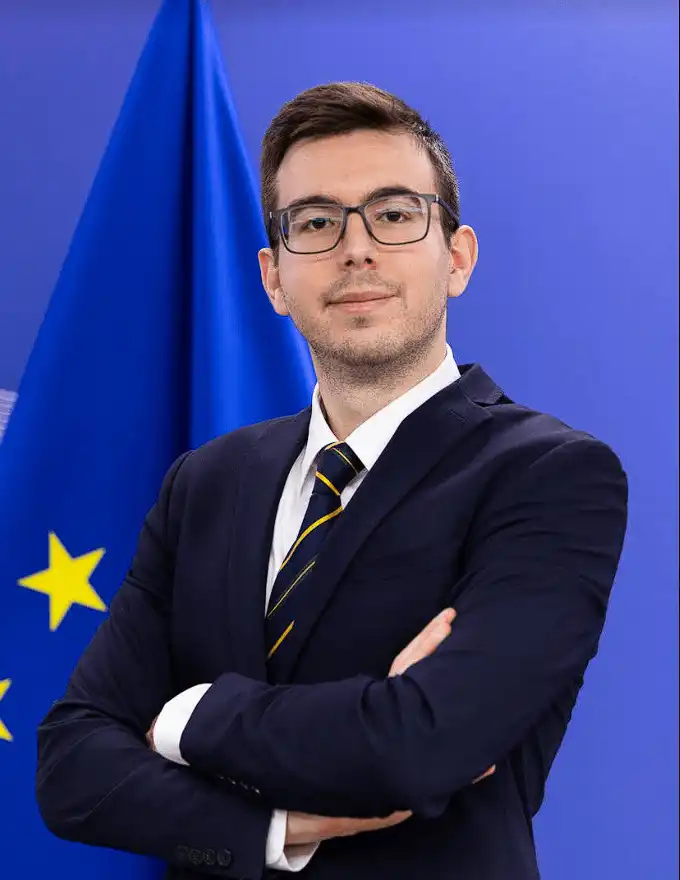Home>Loukas, Blue Book Trainee, Cabinet of the European Commission Vice-President
23.05.2024
Loukas, Blue Book Trainee, Cabinet of the European Commission Vice-President
Coming from Greece, Loukas Papavasileiou has graduated with a Master International Security, with dual concentrations in Diplomacy and Middle Eastern Studies. Loukas currently works as a Blue Book Trainee in the Cabinet of the European Commission Vice-President responsible for Promoting our European Way of Life in Brussels, Belgium.
What are your main responsibilities?
In my current role, I participate in the weekly meetings of the Group for External Coordination (EXCO) where the teams of the European Commissioners and High Representative for Foreign Affairs and Security Policy discuss and finalize foreign policy initiatives on which I subsequently prepare briefing notes for the Vice-President. I also draft speeches and attend high-level meetings with stakeholders. At the same time, I contribute to the analytical work of the Cabinet on files under the portfolio of the Vice-President that encompasses, among others, policies on security, migration and asylum, hybrid threats, and interfaith dialogue.
What is the most fascinating part of your job?
Working as a Blue Book Trainee allows me to experience the decision-making processes of the European Commission and develop a comprehensive understanding of the multifaced role of the European Union as a global actor. This position also provides a great opportunity for me to gain new perspectives and work closely with highly competent colleagues from different countries and backgrounds. In addition, it has enabled me to broaden my knowledge of several EU policy initiatives, notably relating to the use of external policy tools to support the management of migratory flows in third countries. Visiting Strasbourg for the last Plenary session of the European Parliament in April has been an invaluable experience that allowed me to build up a clear picture as to how EU institutions interact with each other.
How did your PSIA experience contribute to the position you hold today?
Attending Sciences Po’s Paris School of International Affairs (PSIA) to pursue my Master’s degree in International Security gave me the unique opportunity to study in a highly diverse educational environment and develop a wide range of interpersonal skills and competencies, such as adaptive thinking and the ability to work cooperatively in a team environment. Courses in grand strategy, foreign and security policy, political sociology, crisis management, and diplomacy provided me with indispensable intellectual skills and enabled me to significantly strengthen my critical reasoning. During my postgraduate studies at PSIA, I was able to build solid foundations for a future career in fast-paced and demanding work environments that require discipline and a strong sense of duty.
What advice would you give to current students?
Each Master’s programme offers a comprehensive curriculum that is taught by leading practitioners and faculty members at the cutting edge of academic research. It is of the utmost importance to demonstrate an open-minded approach and make the most of the academic and professional opportunities provided throughout your studies at PSIA. Try to define your objectives clearly and work methodically to achieve them. As Thucydides wrote, “Few things are brought to a successful issue by impetuous desire, but most by calm and prudent forethought.”


